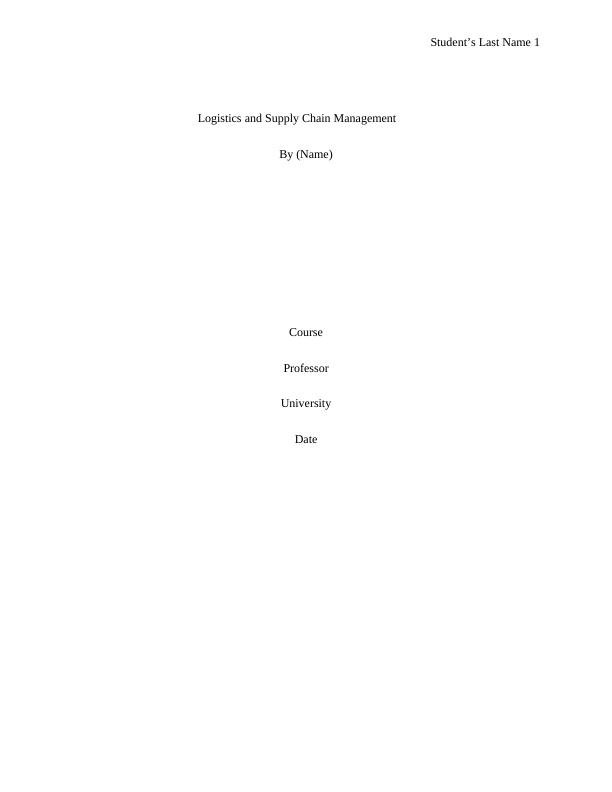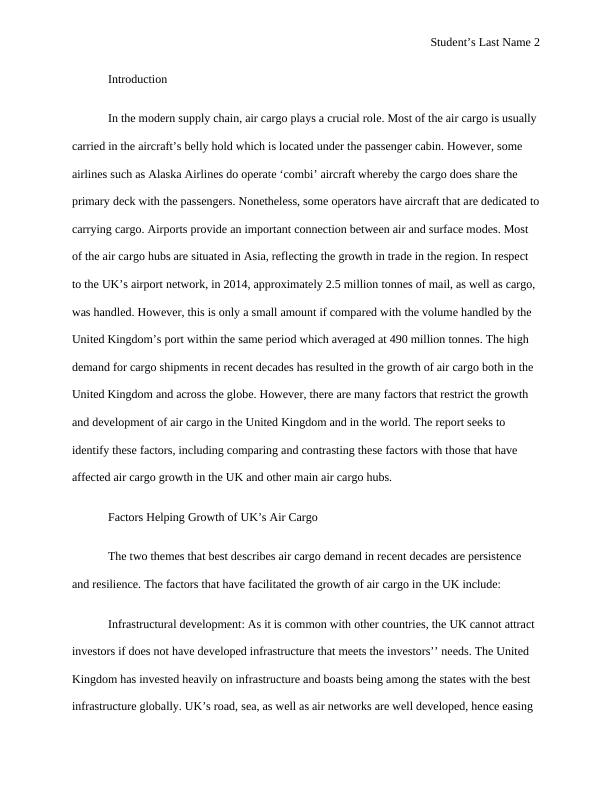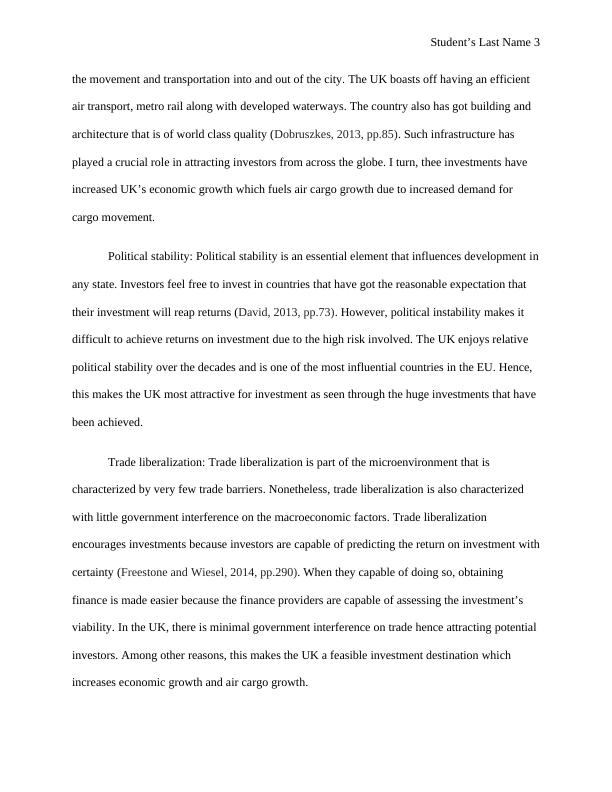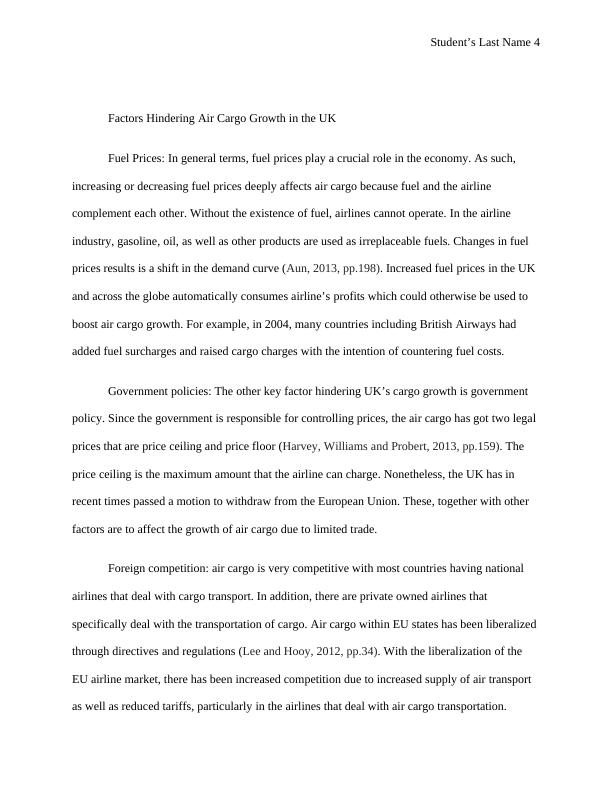Factors Affecting Air Cargo Growth in the UK and Other Hubs
13 Pages3767 Words85 Views
Added on 2023-03-17
About This Document
This article discusses the factors that hinder and help the growth of air cargo in the UK and other main air cargo hubs. It explores the infrastructural development, political stability, and trade liberalization as factors helping growth, and fuel prices, government policies, and foreign competition as factors hindering growth. It also compares and contrasts these factors with those affecting air cargo growth in other hubs.
Factors Affecting Air Cargo Growth in the UK and Other Hubs
Added on 2023-03-17
ShareRelated Documents
End of preview
Want to access all the pages? Upload your documents or become a member.
Changi International Airport: Operations, Cargo Handling, and Enhancements
|6
|1456
|464
AIR CARGO BUSINESS MODEL REPORT 2022
|12
|3291
|24
Challenges in Air Cargo Industry
|11
|3364
|72
Air Cargo: Development, Factors, Comparison, and Challenges
|11
|3055
|63
Challenges of Sustainable Aviation on Airline Industry
|7
|1206
|76
The Global Strategic Management
|9
|1683
|19




